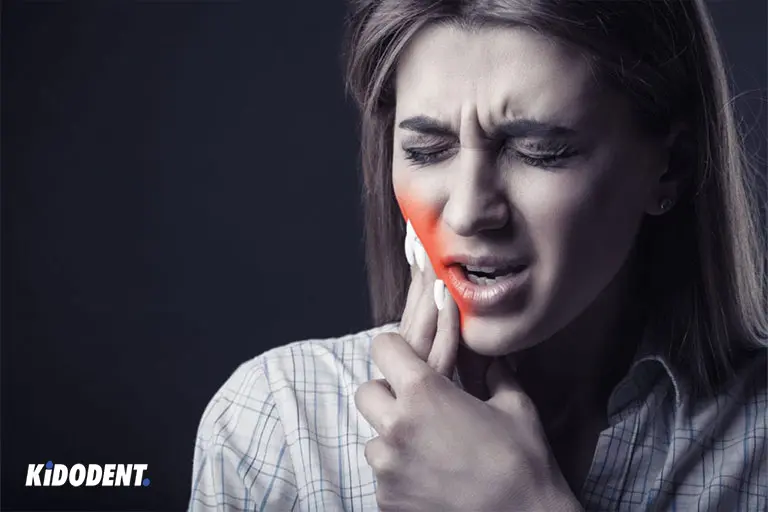Root canal treatment helps save your natural teeth. It involves deep cleaning of the inside of a tooth to address the pain or infection. If you are experiencing tooth decay or injury, this may result in an infection and thus pain and discomfort, requiring a root canal. Although you will get back to your normal life soon after a few days, proper care and following dentist instructions is an important issue for how long your root canal recovery will take. Read on to learn more about root canal and what tips and care you may need to recover safely once your treatment is over.
What is a root canal?
A root canal treatment is a major and very common dental procedure. You will need a root canal when the pulp of your tooth becomes infected and damaged. This may happen especially with an untreated cavity, cracked tooth, or extensive chipping.
Our teeth are made up of enamel— the hardest and outermost layer— and the dentin which is the underlying softer structure. The tooth pulp is the inner soft tissue inside your tooth, located from the crown down to the canal roots. Pulp consists of connective tissues, nerves, and blood vessels. When a tooth enamel or cementum (the layer that covers the roots) is damaged as a result of tooth decay or injuries, the bacteria in our mouth can reach the pulp. This can cause an infection and inflammation in the pulp which can then lead to tooth abscess and spread to other teeth if not treated in time.
A dentist or endodontist (a specialized root canal dentist) will need to drill a tiny hole on top of the affected tooth to remove the diseased pulp and disinfect all the root canals. The tooth will be filled with a special material called gutta-percha. Your tooth is then sealed with a temporary filling and a permanent crown is placed over the tooth to protect it from further damage, if your tooth is severely broken down or decayed.
What to expect after a root canal?
Before a root canal procedure, your dentist or endodontist will make sure your treatment is as painless and comfortable. So, they start by applying local anesthesia to numb your tooth and other surrounding soft tissues.
After your procedure as the effects of the anesthetic wear off, you may feel some mild tenderness in the area around the tooth for a few days while it is healing. There may be some jaw soreness because of having your mouth open during the procedure. Generally, you can expect to have some discomfort at the site of the root canal.
Over-the-counter pain relievers will usually work well to ease your pain. If necessary, you may receive a prescription for stronger narcotic medication. You need to follow your doctor’s instruction on dose and other important tips. Since narcotics can make you feel drowsy, you should be careful when you are driving or operating machinery in case you take one.
The time of root canal recovery
Usually, root canal recovery time takes up less than a week. You may experience mild pain or discomfort after a root canal for just a few days. This will subside and you can help manage it with pain medications. If you have severe pain after your root canal, contact your dentist. Although it may not happen often, there can be some reasons such as failure in properly cleaning the roots that can lead to an infection after a root canal and the need for retreatment.
The healing process for post-treatment root canal is fairly quick and most symptoms tend to be mild. You may have slight swelling after the treatment which should reduce and not get worse. It is important to follow your dentist’s instruction for proper healing. As long as you do what your dentist recommends on good oral health as well as other aftercare tips, you will soon get back to daily activities.
Finally, if you have temporary restoration on the tooth, you need to be extra cautious of how you chew or even brush. Make sure you are gentle and protect your tooth until it is fully restored and your dentist will put the final crown.
When should you call your dentist?
Pain after a root canal goes away within days. However, if you have severe sharp pain even after several days, it is essential to see your dentist immediately. It can be a symptom of an underlying issue which your dentist may help resolve when you visit the dental office sooner.
Here are alarming signs and symptoms that indicate you should visit your dentist right away:
- Moderate to severe pain
- Swelling does not subside and is persistent beyond 2 days
- Pain or pressure that takes longer than a few days
- The temporary filling or crown falls off
- Your pain doesn’t respond to pain medications
- Feeling that your tooth is high or your bite is not aligned
Caring tips for faster root canal recovery
It is essential to take special care of your tooth or teeth being treated after your root canal until it heals or is completely restored by your dentist or endodontist.
- Avoid chewing or drinking hot or cold liquids immediately after the treatment until the anesthetic effects wear off completely.
- Don’t chew or bite hard on hard foods.
- Don’t smoke for the first hours and days after your treatment.
- Brush your teeth twice a day or as recommended by your dentist. Be gentle in the area of treatment as you brush.
- Floss daily and gently so that you don’t harm the affected tooth.
- Return to your dentist for regular check-ups and have visits for thorough dental cleaning.
